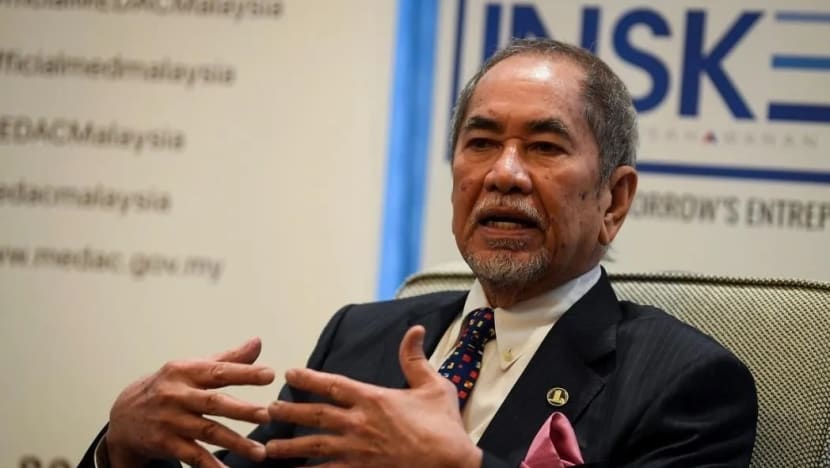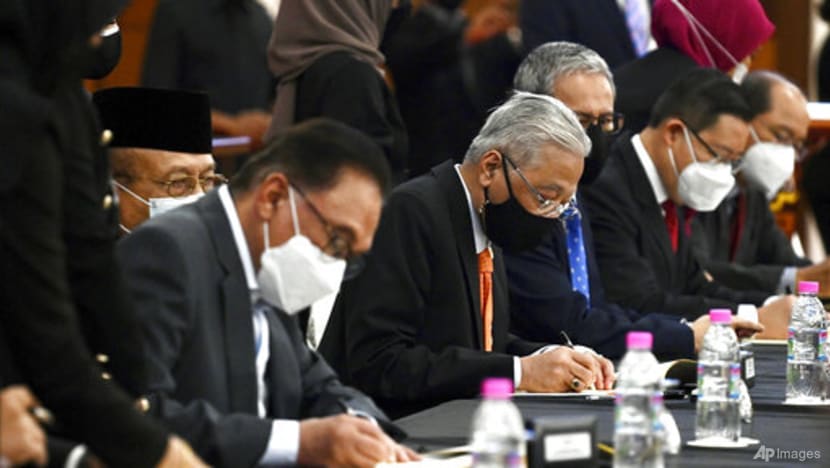Malaysian government proposes to create third deputy speaker post; role will be given to opposition

Minister in the Prime Minister’s Department (Parliament and Law) Wan Junaidi Tuanku Jaafar. (File photo: Bernama)
KUALA LUMPUR: The Malaysian government would propose amendments to the Federal Constitution in order to create a third deputy speaker post, said de facto law minister Wan Junaidi Tuanku Jaafar on Tuesday (Sep 14).
The role will be held by the opposition, he added.
Speaking in parliament as he outlined why the government was seeking to postpone the election for a new deputy speaker, he said: “We want to bring a constitutional amendment to this house, to amend Article 57(1)(b) for us to increase the number of deputy speakers from two to three.”
He said the Constitution did not state who would hold the deputy speaker posts, as the individuals were elected by Members of Parliament (MPs) in the Lower House.
“So we will make a rule maybe, that one of the three deputy speakers, once it is approved, will be held by the opposition, no matter who forms the government,” Mr Wan Junaidi said.
He added that he had discussed the matter with the Attorney-General. He said that the proposed amendment could have its first reading by the end of the current session and later be passed during the following parliamentary session in October.
The speaker agreed to postpone the election of the deputy speaker, without any need for debate.
Mr Wan Junaidi was responding to a question by Bayan Baru MP Sim Tze Tzin on why the election had been postponed.
The Parti Keadilan Rakyat MP said as parliament would be meeting throughout September and until December, the workload would be very heavy with just Speaker of the House Azhar Azizan Harun and Deputy Speaker I Mohd Rashid Hasnon. Under the current Constitution, there is one speaker and two deputies.
“There were many motions to debate, including the Royal Address, as well as the upcoming Budget 2022 and various special parliamentary committees,” Mr Sim noted.
The second deputy speaker post has been vacant since Pengerang MP Azalina Othman Said announced her resignation on Aug 23. She cited several reasons for stepping down, including the conflict between her roles as a member of the United Malays National Organisation (UMNO) supreme council, and as an MP in the ruling coalition.
Earlier, Malaysian media reported that Pontian MP and UMNO secretary-general Ahmad Maslan had been nominated for the position by the ruling coalition, while Pakatan Harapan (PH) put forth former deputy speaker and Teluk Intan MP Nga Kor Ming.
On Monday, the government signed a “historic” Memorandum of Understanding (MOU) with PH to strengthen political stability amid the COVID-19 pandemic through bipartisan cooperation.
The MOU lists a number of areas for transformation, including the proposal of an Anti-Party Hopping Bill to prevent politicians elected on one party’s platform from defecting to another party, as well as implementing UNDI 18, a constitutional amendment lowering Malaysians’ voting age to 18 and automatic voter registration, before the first parliamentary meeting for 2022.
Parliamentary reforms in the MOU also include presenting and passing a Parliamentary Service Bill, to ensure parliament became an independent institution, as well as equal allocations for both government and opposition MPs.

PARLIAMENTARY COMMITTEES CARRY MORE WEIGHT THAN SPEAKER ROLE: ANALYST
Mr Mohammed Raheezal Shah Abdul Karim, a senior political science lecturer at Universiti Teknologi Mara’s Sabah campus, said in the short term, Mr Wan Junaidi’s announcement did not change much for the opposition.
“Of course, this comes just a day after the historic MOU signing between the government and PH, but there is nothing in the MOU that specifically addresses the question of the speakers’ composition," he said.
Mr Mohammed Raheezal Shah also disagreed with the idea of allocating the speaker positions, stating that in any parliamentary system, the government or the opposition could propose an MP for the position and put it to the vote.
“But to say we should reserve or put some form of quota, in this case for the post of deputy speaker, it would only make the position more political,” he said.
He added that in the longer term, the position of speaker held by the opposition would not greatly affect parliamentary proceedings, as most of the discussion on parliamentary reforms focused on the role of select committees, or lack thereof.
“Parliamentary committees, especially select committees as commonly practised in other democratic parliamentary systems, can empower MPs from both sides to conduct their own sessions without much interference, from the deputy speakers or even the speaker himself,” added the political scientist.
















